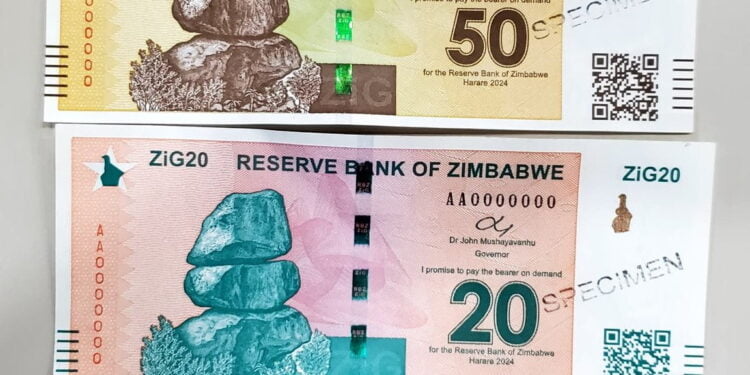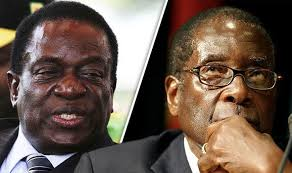South Africans are fascinated by one of the security features of Zimbabwe’s one month old currency the Zimbabwe Gold (ZiG). The ZiG banknotes and coins entered circulation on Tuesday this week, replacing bond notes, RTGS, and the previous Zimbabwe dollar.
The ZiG banknotes boast several security features, including a colour-shifting security thread, tactile markings for the visually impaired, a Zimbabwe bird watermark, and alphanumeric numbering. They also feature QR codes, the function of which has not yet been disclosed by the Reserve Bank of Zimbabwe (RBZ).
Taking to X, a South African user @Fortunate__ claimed that the QR code on the ZiG banknotes lets its holder deposit it into their bank account by simply scanning it.
“Did you know? In Zimbabwe, the new bank notes have a QR code. This code lets you put money into your bank account by simply tapping it with your phone,” the user posted on X.
The post raised more questions than answers. Some users questioned whether scanning the QR code would render the physical note worthless, while others speculated that it was primarily a security measure against counterfeiting. Here are some of the comments on the use of the QR codes on the ZiG banknotes:
@CRangataJ:
So if I sent it to my account, I can simply burn the note?
@Ron_YNWA:
Automatically the note becomes useless
@dramadelinquent:
So what happens to the note after that? Who is checking that it’s not in someone’s bank account, and being used again at a till
@SandileKaMsibi:
Tap? QR codes are scanned using a camera; only NFC & similar tech are tapped.
Also, that is just like any unique identifier – it could have been an HCCB, a string, a number, a chemical signature, a barcode, etc. All banknotes have an identifier. You chose one standard.
Lastly, do banknotes fly to the bank after scanning?
@i17887460:
Quite the contrary. The QR code identifies the note and its production date. The note is backed by a basket of forex and metals. Imagine will be used in future to get a real time valuation should the reserve bank decide to float the currency.
Source iHarare










